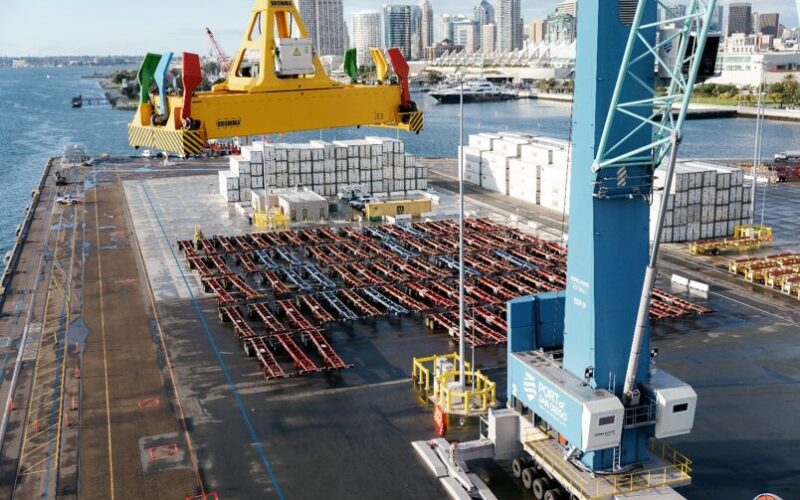The Port of San Diego has implemented and is making significant progress on 80 per cent of the objectives outlined in its Maritime Clean Air Strategy (MCAS), according to the latest MCAS Highlights Report.

These efforts have led to notable decreases in emissions related to maritime operations.
Since the last air inventory conducted in 2019, Port maritime operations have seen a 46 per cent reduction in diesel particulate matter, 32 per cent reduction in nitrogen oxides, and a 10 per cent decrease in carbon dioxide.
“All of us at the Port of San Diego are excited to see the Maritime Clean Air Strategy (MCAS) delivering results,” said Chair Danielle Moore, Port of San Diego Board of Port Commissioners.
“Over the last four years, our staff and partners have leaned into MCAS and are advancing cleaner air and better public health in our portside communities. The investment and deployment of new, zero-emission technologies show we can grow the economy while safeguarding the people we serve.”
In support of its “Health Equity for All” vision, the MCAS identifies projects and initiatives to improve environmental and public health through cleaner air for all who live, work, and play on and around San Diego Bay while also supporting efficient and modern maritime operations.
To date, the Port of San Diego and its partners have committed more than $227 million for maritime electrification and efficiency efforts.
This includes:
$83.4 million – Tenant and service providers’ electric equipment and commercial harbour craft
$27.7 million – Port electric vehicles and equipment
$75.5 million – Infrastructure upgrades at Port of San Diego cargo and cruise terminals
$18.5 million – Freight efficiency along Harbour Drive
$20.8 million – Clean Truck Programme
$900,000 – Community Outreach and Workforce Development
The successful implementation of many MCAS initiatives has positioned the Port of San Diego and its tenants to attract millions of dollars in state and federal grants.
Most recently, the port was awarded a $58.6 million EPA grant with a $27.7 million match, totalling $86.3 million. The grant supports:
Electrical upgrades at the Tenth Avenue Marine Terminal to support charging infrastructure and shore power.
Zero-emissions truck charging infrastructure.
The purchase and deployment of 77 new pieces of zero-emission technology, including heavy-duty trucks, shuttle vans, and cargo handling equipment.
In addition to zero-emission infrastructure and equipment upgrades, the MCAS also focuses on community engagement through the continuation of the Portside Community Academy.
Developed in 2023, the Academy provides structured education on maritime-related air quality projects pursued by the port.
To date, it has graduated nearly 150 participants from six cohorts. Two more cohorts are expected to graduate this autumn, with two additional cohorts planned for spring 2026.
Last week, the Port of Long Beach invested $102 million to purchase and sustain zero-emissions cargo-handling equipment, fund cleaner marine engines and plan for a zero-carbon future at terminals.
WeChat scan code

support hotline

mobile phone
Copyright © 2023 All Rights Reserved. Add:No. 8-1, Xigan Road, Xinwu District, Wuxi City XML